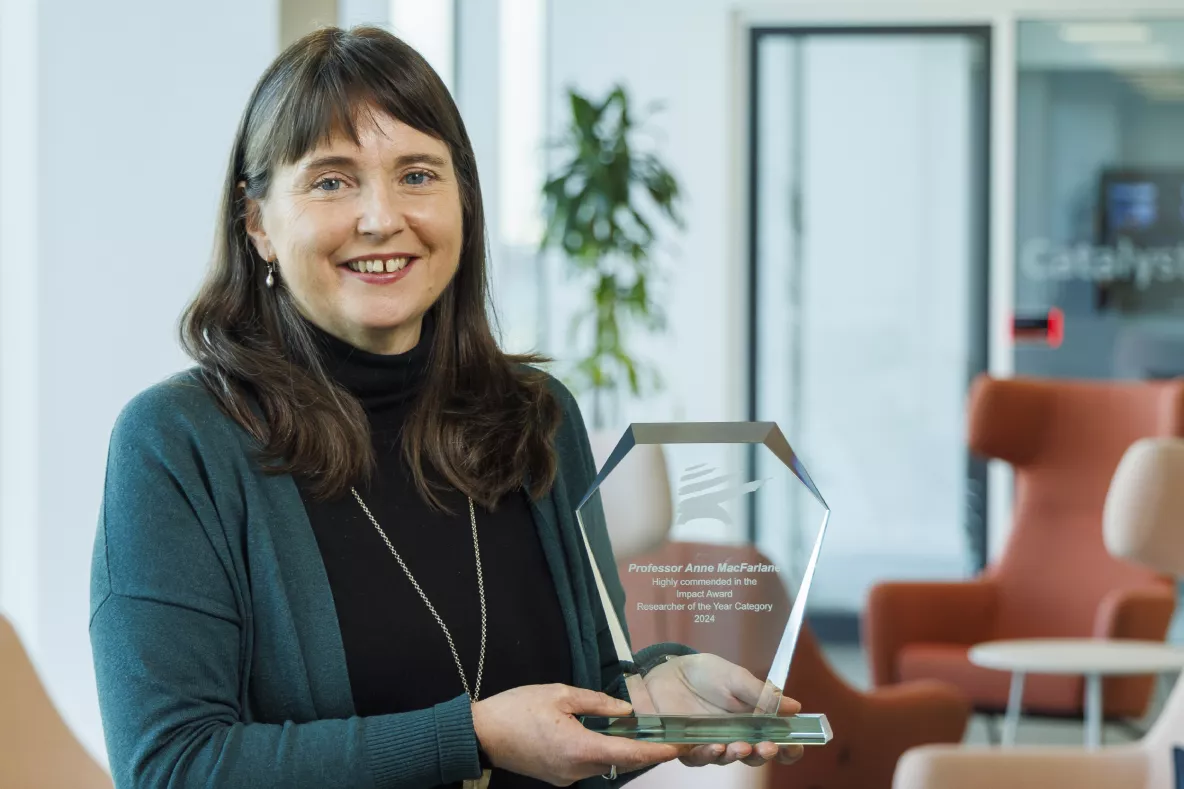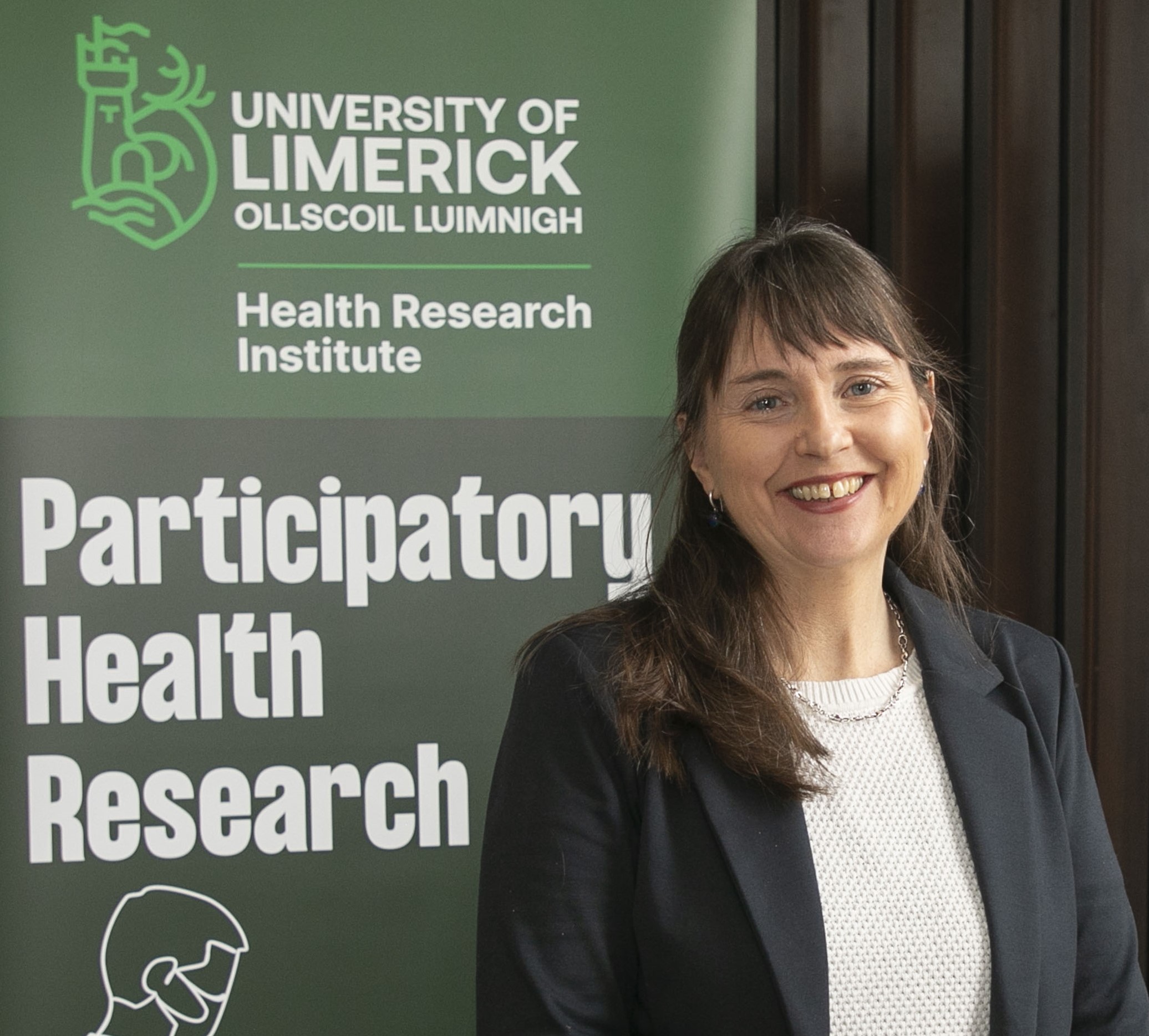

A University of Limerick academic has been recognised for her work in advancing the involvement of patients and the public in general practice and primary health care service research.
Professor Anne MacFarlane, Professor of Primary Healthcare Research in UL’s School of Medicine, was Highly Commended in the Impact Award category of the Researcher of the Year (IRC legacy) Awards 2024, which have just been announced.
The awards celebrate the very best of Irish Research Council (IRC)-funded researchers deemed to have made highly significant and valuable contributions to knowledge, society, culture and innovation.
These awards, which are in their eighth year, are legacy awards from the IRC which has now been amalgamated with Science Foundation Ireland to form Research Ireland.
Professor MacFarlane is a world-recognised primary care academic with expertise in patient and public involvement (PPI) in research, particularly with migrants, which is rare, ad hoc and unevenly spread across countries.
She works with the World Health Organisation to improve PPI with refugees and migrants and her research directly contributes to SDG 3 Good Health and Wellbeing and SDG 10 Reduced Inequalities.
She is Director of UL’s World Health Organisation Collaborating Centre for Participatory Health Research with Refugees and Migrants and co-director of the Participatory Health Research Unit at UL.
Awards were presented in three other categories in addition to the Impact Award – Researcher of the Year, Early Career Researcher and Research Ally.
Congratulating the awardees Peter Brown, Director, Researcher Development in Research Ireland said: “The researchers being honoured have demonstrated excellence in their many achievements within and beyond their disciplines. The awardees are wonderful examples of those that have gone above and beyond to bring new knowledge and understandings to the fore.
“At different stages in their research journey, they are enriching their respective fields and Ireland’s research and innovation system. Across the humanities, science and medicine, the awardees are contributing to a better, healthier, more sustainable and more culturally enriched world, benefiting us all.”
Reacting to her award, Professor MacFarlane, said: “It is important that patients and the public have a voice about general practice and primary care research because they have expertise about their own health. If we do not hear that expertise, we are missing information to design services that improve people’s health.
“All of the research I do is participatory research. This means that it is done in partnership with members of the public and patients as well as other academics and people working in the health services and health policy making.
“This inclusive partnership approach is generally more time consuming than traditional research, when academics work alone. Therefore, this award is an award for everyone involved and celebrates the time and effort that we take to work together to generate evidence to improve people’s health. It is a wonderful honour,” added Professor MacFarlane.
As a social scientist who champions inter-disciplinary research in primary care, Professor MacFarlane spearheaded the distinctive Participatory Health Research unit in UL’s School of Medicine which draws on general practice, allied health, biostatistics, sociology, anthropology and music.
Looking to the future, Professor MacFarlane aims to promote participatory research to improve equity of access for migrants who need the support of interpreters in healthcare.
“We know a lot about the problems and barriers to using trained interpreters in general practice and primary care consultations, but we need to learn more about solutions to overcome those barriers - everyone deserves to have voice when talking to their health care provider,” Professor MacFarlane added.
Professor MacFarlane is also pioneering the use of music and singing as participatory methods in research with migrants through her collaboration with Professor Helen Phelan, Director of UL’s Irish World Music Academy of Music and Dance.
“We are planning new projects to learn more about the role of music and singing in public and patient involvement with refugees and migrants, particularly about how these inclusive and energising whole-body methods can generate new kinds of evidence to adapt health services for migrants from diverse language and cultural groups,” she concluded.

Telephone: +353-61-213081 or 234392
Faculty Office, Faculty of Education and Health Sciences, University of Limerick, Limerick, Ireland.